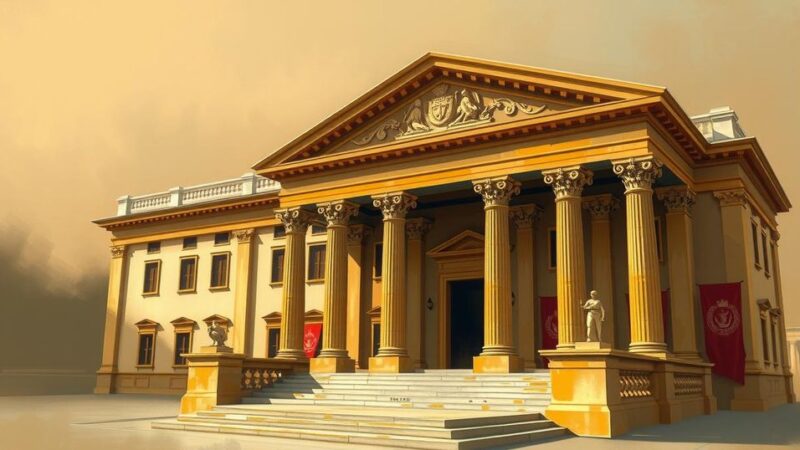President Félix Tshisekedi of the DRC has offered U.S. President Trump military support in exchange for access to essential mineral resources. This proposal underscores the DRC’s wealth in minerals crucial for technology industries and seeks to develop a strategic partnership to combat the M23 rebels. Experts view this as a potential shift in U.S.-Africa relations, intertwining military aid with economic opportunity.
President Félix Tshisekedi of the Democratic Republic of the Congo (DRC) has proposed a partnership to U.S. President Donald Trump, offering military support in exchange for access to the DRC’s vital mineral resources. In a letter dated February 8, 2025, Tshisekedi emphasized the potential for a mutually beneficial relationship, highlighting the DRC’s wealth in minerals such as cobalt, tantalum, and lithium, which are crucial for various advanced industries.
In his communication, Tshisekedi urged Trump to consider an official security agreement to bolster the Congolese army’s efforts against the M23 rebel movement, which he asserts is supported by Rwanda. These minerals are not only significant for the DRC’s economy but are also vital for U.S. tech companies involved in industries that rely on battery production and electronic components.
Tshisekedi noted, “Your election has ushered in a golden era for America… Our partnership will provide the U.S. a strategic edge by securing vital minerals from the Democratic Republic of Congo,” revealing the geopolitical advantages such cooperation could yield for the United States. The DRC’s mineral wealth offers strategic benefits for American companies like Apple, HP, and Intel, which depend on these materials for their products.
Additionally, Tshisekedi is in discussions with Eric Prince, the founder of Blackwater, to assist in tax revenue collection from mining operations. This arrangement aims to stabilize the Congolese economy while accommodating U.S. corporate interests. As the DRC contends with threats from the advancing M23 rebels, the partnership proposal accentuates the economic and military synergy potentially forming between the nations.
International relations experts are observing this unfolding situation, recognizing the potential for the U.S.-Congo relationship to evolve significantly. The DRC’s proposal emphasizes a novel diplomatic strategy that intertwines military assistance and resource access, challenging conventional notions of international relations, particularly in resource-rich regions.
As talks advance, the outcomes could redefine U.S. engagement with Africa, embodying a shift towards resource-driven partnerships that integrate security with economic interests. Tshisekedi’s approach presents a nuanced understanding of the interdependence between military support and economic opportunity, setting a potential precedent for future international alliances.
Ultimately, as global commodity prices and resource demands continue to fluctuate, this moment signals a pivotal point in U.S.-Africa relations where military and economic considerations increasingly converge, potentially impacting both domestic and international policies in the region.
The proposed partnership between the DRC and the United States illustrates the intersection of military support and resource acquisition in contemporary international relations. President Tshisekedi’s offer presents a potential framework for cooperation that could yield significant benefits for both parties. As this proposal develops, it may redefine the dynamics of U.S. involvement in Africa, emphasizing the economic implications of military alliances. The overarching implications of this engagement could resonate far beyond the DRC, possibly reshaping alliances and foreign policy strategies in similar contexts.
Original Source: evrimagaci.org






